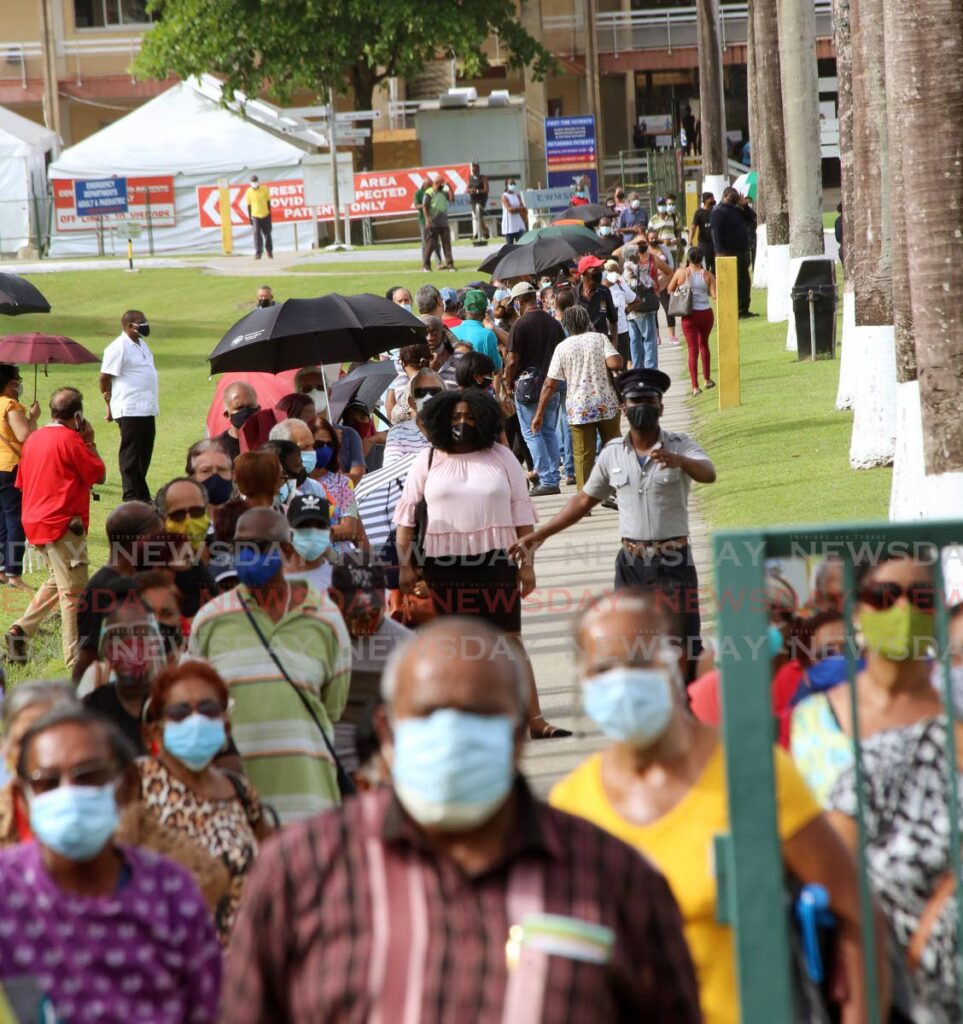
Speakers at a symposium last week said 12.7 per cent of Trinidad and Tobago’s population are diabetic, which amounts to over 100,000 people, and the public should be keenly interested in mitigating their risks.
Possible long-term effects of diabetes include nerve and kidney damage, vision loss, amputations, and even cancer.
To commemorate National Diabetes Month, more than 100 people attended the Carlton Phillips symposium and lectures at the UWI, St Augustine campus on November 24, despite heavy rain which subsequently flooded many areas.
After opening addresses from Dr Michelle Harris from the Pan American Health Organization (PAHO) and Dr Tamu Davidson from the Caribbean Public Health Agency, people with diabetes and medical professionals shared their testimonials.
Podologist and certified pedicurist Yvonne Braithwaite Superville, from Rondon Home Health Care Ltd, came prepared with her mascot PB, a mannequin.
Braithwaite-Superville said, “PB is blind, he has hearing problems, he has a tracheostomy (a surgical opening in the throat) because he used to drink and smoke a lot. PB’s leg was amputated. Diabetes starts with the feet."
Besides PB, she had other models, of feet with sores, missing toes, black, gangrenous and ulcerated.
“A lot to take in, eh.”
Braithwaite-Superville likened diabetes to a form of cancer, "meaning it affects every vital organ in our body."
Leana Huntley presented on the Diabetic Foot: Prevention and Treatment. She said people are often unaware of the symptoms of diabetic foot.
“Sometimes it’s a little cramp or swelling. The cramping after a short walk, or the restlessness in bed at night, or dry skin and scaliness in the feet. Those are the things to look out for.”
She said amputations generally begin with a single digit.
“So you might lose the baby toe after stumping your feet, and you have neuropathy, so you didn’t feel it. Your status can change very quickly."
Neuropathy is weakness, numbness or pain in the hands and feet, caused by peripheral nerve damage.
Huntley said, “And in TT we have this mentality where 'My neighbour tell me I could rub it with...' or, 'Wrap it with wonder of the world.'
“It's not wrong to use home remedies, but if used for too long, things could be 'quite fatal'. "
“It could start with one and then lead to above-the-knee or below-the-knee amputation.”
Other presentations at Saturday’s symposium included: What’s New in Diabetes Medicine by Dr Aneesa Ragbir, Diabetes and your Ears, Nose and Throat by Dr David Richards, and“Stressful Butterflies vs Diabetes (Made Meham) – realities and preventative strategies."
Renard Ramnath, a volunteer with the Diabetes Association of TT, said the symposium was very informative, but he felt very cold in the auditorium.
Ramnath said he looked forward to the upcoming men's forum which had to be postponed due to the weather.
His favourite presentation was that of podiatriast Leana Huntley.
"What she said is true. It's difficult to find health conscious footware in Trinidad. We more focused on fashion than comfort. You know boots are in these days and as she mentioned, that is one thing that could affect the shape of your foot, and increase your risk."
He said in February he was among 25 volunteers, but there are now over 100.
“Any time there is events, the volunteers head outreach programmes. We do free glucose testing and free pressure testing to the public, across TT.”
A participant, Brenda Manrajh-Mohammed, said she was very grateful for the knowledge she gained. She has had diabetes for the past 17 years.
“You really learning a lot,” she said.
Manrajh-Mohammed came because her son. Rajveer Mohammed, is an intern at the Diabetes Association of TT – Youth Advocacy.
Mohammed said, “The whole point of this symposium, is it’s the biggest congregation of doctors and people involved with combating diabetes. We are here on education…educating the young and the elderly.”
National Diabetes Month concluded on November 30, "but the fight to contain the non-communicable disease is year round," he said.


